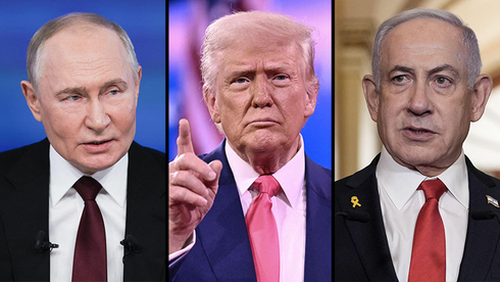Russia has reiterated its support for Iran's right to pursue peaceful nuclear energy - again, contrary to the claims of recent Western sources. However, the Kremlin has stopped short of offering military assistance, at a moment more Israeli action could loom.
The UK, France, and Germany have meanwhile announced renewed nuclear negotiations with Iran in Istanbul, warning that UN sanctions could be reimposed if progress isn’t made.
Tehran has on the other hand remained firm that it is its sovereign right to enrich uranium. Though admitting that some key nuclear facilities are damaged or largely destroyed in the wake of the US attacks which capped the 12-day war, Iranian leaders have constantly signaled that they still have the capacity to enrich.
President Trump on Monday issued yet another warning directed at Tehran:
Speaking during a news conference in Scotland beside the United Kingdom’s Prime Minister Keir Starmer, Trump said that Iran was “sending very bad signals, very nasty signals”.
“And they shouldn’t be doing that,” he said. “We wiped out their nuclear possibilities. They can start again. If they do, we’ll wipe it out faster than you can wave your finger at it.”
“We will do that gladly, openly and gladly,” he said.
Of course, it's still anything but certain whether their nuclear capabilities were completely 'wiped out'. Many analysts have pointed to the likelihood that much uranium was moved before the US strikes, or that there are bunkers so far underground that the biggest and most penetrating bombs in America's arsenal can't reach them.
So far, Israel has refrained from launching any renewed strikes - despite that Iran's air defenses over much of the country were reportedly demolished, giving Israel freedom of the skies - likely because Trump wants the ceasefire to hold, as he can present himself as 'peacemaker' in the region.
